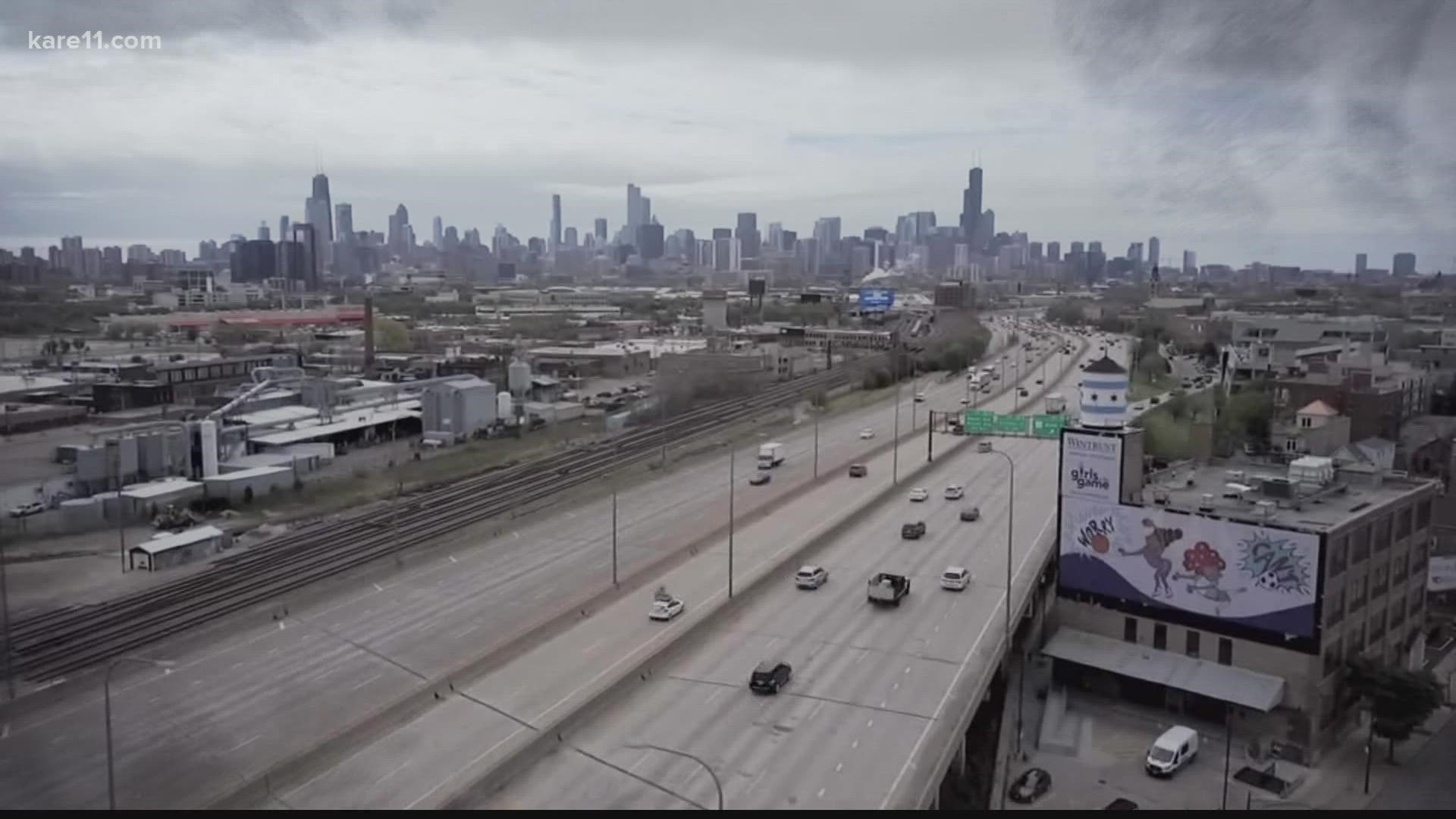ST PAUL, Minn. — In a matter of days, millions of people in the Twin Cities metropolitan area will be required to show proof of vaccination or a negative COVID-19 test to eat indoors or engage in other activities inside the city limits of Minneapolis and St. Paul.
To understand how these policies might work in practice, look no further than the city of Chicago, where a similar vaccine requirement took effect less than two weeks ago on Jan. 3. While Chicago does not give customers a test-out option, it requires everyone 5 and older to show proof of vaccination at many indoor venues. People 16 and older also need to show photo ID.
Sam Toia, the president of the Illinois Restaurant Association, said the vaccine requirement is at least a workable solution — much more preferable, in his mind, than reverting back to capacity limits.
“There’s definitely some folks that are very happy this vaccine mandate is in place,” Toia said. “And there’s some folks that are very bitter that it’s in place.”
So far, Toia said there has been a learning curve in Chicago, particularly for customers who are not accustomed to showing proof of vaccine to enter indoor establishments.
“It’s been rough. I’m not going to say it’s easy. It’s challenging to implement, to be sure.” Toia said. “Some guests get a little hot under the collar. We encourage your viewers, please be nice to the team members. They’re only following the executive order that’s coming down from the mayors. That’s all they’re doing.”
By adding vaccine requirements after the new year, the cities of Chicago, Minneapolis and St. Paul actually waited longer than many other major American cities. King County, home to Seattle, started mandating proof of vaccine in late October, while New York City and San Francisco, to name a few, created policies that took effect in August.
“A lot of my colleagues probably increased dining after the mandate,” said Dr. Peter Chin-Hong, a professor of medicine and infectious diseases specialist at the University of California, San Francisco, “because it just felt like a safer environment.”
The CDC has acknowledged that vaccinated people can still spread omicron, however, the vaccines make you less likely to be infected, and significantly less likely to die or get seriously ill from COVID-19.
“The more protection you layer on top of each other, the safer for all of us,” Dr. Chin-Hong said. “If you’re boosted, you can get about a 70-percent protection, even against infection with omicron.”
From a pure statistical standpoint, it’s hard to determine whether vaccine requirements have impacted cases and hospitalizations. But, as Dr. Chin-Hong points out, “We have loads and loads of studies, from all around the world, showing that when you get vaccinated, you do decrease the strain on the hospitals.”
Even so, these vaccine requirements across the country have been criticized by some as unnecessary.
Anthony Anton, the president and CEO of the Washington Hospitality Association, said his group opposed the requirements implemented by King County in Seattle, as well as Clallam and Jefferson Counties in an area visited heavily by tourists. All of those counties implemented their mandates before omicron began spreading.
“We weren’t really comfortable with either one of these proposals, but we’ve been working with them in what they’re trying to accomplish,” Anton said. “It’s just not been an effective solution and I think that’s the biggest concern.”
Watch more on the coronavirus:
Watch the latest reports and updates on the coronavirus pandemic in Minnesota with our YouTube playlist:

